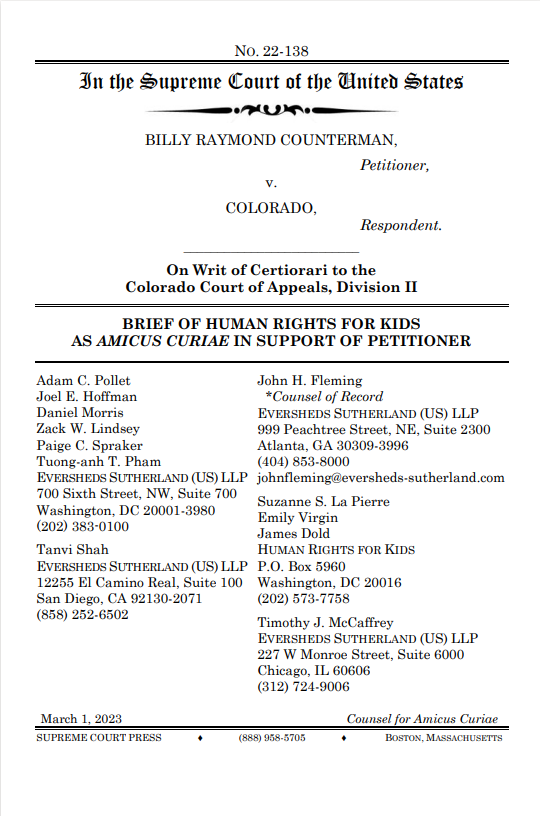Resource Library
Sydney Baker et al., 29 Psychol. Pub. Pol’y & L. 320 (2023). This article is a call to action for the research community and advocates to engage youth and families with lived experience in the legal system in research on the impacts of race, development, and identity on youth interrogations. The authors detail the limitations…
Involvement with the delinquency system—including arrests, charges that get dismissed, and adjudications— can create obstacles to a young person’s success. Many youth experience overwhelming hurdles because their juvenile records are available to the public, appear on background checks, or create long-term debt from fines and fees, which can result in denial of employment, housing, loans,…
Key Points: Testing limits is normal adolescent behavior. Young people act out, make mistakes, and push boundaries largely because the parts of their brains that regulate these behaviors are still being formed. Diverting youth from the legal system by keeping them in school can result in better life outcomes for young people. The legal system…
The words we choose have a significant impact on the young people we serve. We may inadvertently use language laden with bias, disapproval, and negative judgment that can impact youths’ perceptions of themselves. Our language can also impact our own thinking and decision-making. In Part I of this guide, we hope to break down some…
In February and March 2020, as COVID-19 spread throughout the United States, NJDC recognized a crisis facing youth involved in the juvenile courts and the attorneys tasked with defending them. The contagious nature of COVID-19 and the public health protocols meant to mitigate transmission heightened risks to the health and wellbeing of youth entering the…
Referring young people to the legal system can negatively impact their life outcomes as it excludes them from school, disconnecting them from learning and engaging in prosocial activities. There may be times when schools need to seek assistance from law enforcement, but for the vast majority of situations, a variety of levers exist outside of…
Numerous myths and misconceptions exist about involvement with the juvenile legal system and the effects it can have on a young person’s trajectory to success. Many people have misconceptions about the mostly unrealized benefits of juvenile court, thinking juvenile court is a benevolent system of support that does not lead to longterm negative outcomes. The…
This guide provides information about what obstacles may lie ahead and how to prepare yourself as you move forward with your life after being involved in the juvenile court system. Your juvenile record can affect your life for years to come. But you can still pursue your goals and build a bright future by understanding…
The perspectives of young people with system experience are particularly important in efforts to strengthen and improve juvenile defense advocacy. With the state, prosecutors, victims, witnesses, law enforcement, and probation officers on the other side of the table, youth rely on their defender to hear and honor their voices and ensure they are full participants…
This guide provides information about what obstacles may lie ahead and how to prepare yourself as you move forward with your life after being involved in the juvenile court system. Your juvenile record can affect your life for years to come. But you can still pursue your goals and build a bright future by understanding…

























